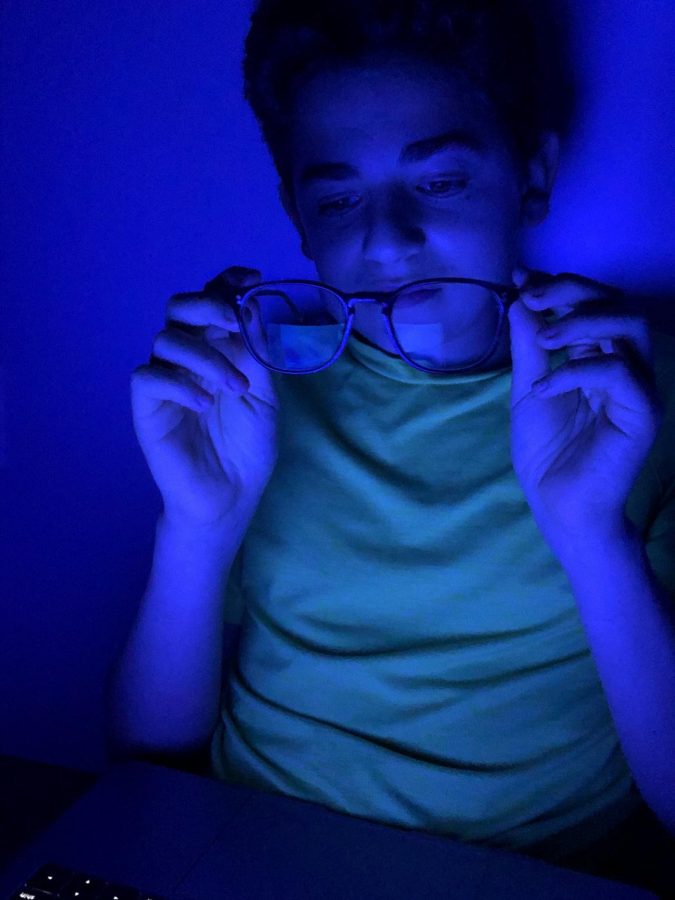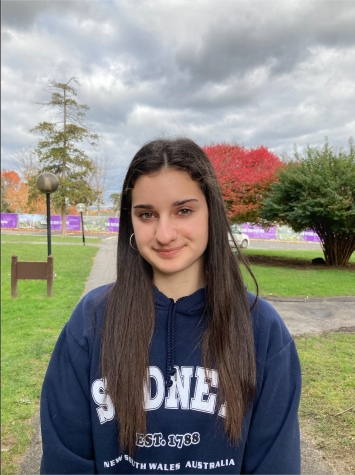Blue light glasses in high demand as screen time spikes
Brian Wolfson examines a pair of blue light glasses. These glasses are becoming more popular as schools and businesses shift to online platforms; they help protect the eyes from blue light, which can cause eye discomfort when exposed for long periods of time.
May 1, 2020
As the chaos of the coronavirus has continued to spread, school communities have been forced from their campuses, leaving students and teachers to explore the complexities of “virtual learning.” Consequently, the number of hours that students spend on their screens has practically doubled, propelling the high demand for blue light glasses.
These specific glasses help protect the eyes from blue light, one of the colors on the light spectrum that appear on devices, and that can cause eye discomfort when exposed for long periods of time. Organizations such as The American Academy of Ophthalmology, have studied the effects of blue light extensively and found that while it is not dangerous, it can cause serious eye strain.
In 2015, Felix Gray Incorporated came out with the first pair of blue light glasses, which have since been adopted by Warby Parker, Amazon and Target, along with various other companies. Co-founder of Felix Gray, David Roger, worked with Dr. Raj K. Maturi of the Midwest Eye Institute in Indiana, developing the blue light lens.
In an interview, Maturi said, “They are designed to filter out the blue light high energy frequencies from the visible light spectrum.”
However, Maturi concluded that our eyes do not need protection from all blue light. Humans are exposed to blue light every day when walking outside into the sunshine, making this type of light also a necessity to maintain a healthy circadian rhythm. This rhythm regulates the sleep-wake cycle in the brain. The key, according to Maturi, is finding the correct balance between natural and artificial blue light.
Additionally, technology companies are beginning to adapt their devices to protect the eyes from blue light. Many use specific computer programs, such as f.lux, to adjust the color temperature on a screen, at night. Bhavin Patel, the director of technology at Masters, stands behind this program and its ability to help our eyes.
Patel said, “We installed f.lux onto all Masters Faculty laptops, to minimally mitigate any damage that can occur from staring into screens.
In the Master’s community, many members of the faculty and student body have already purchased the glasses and use them daily. English teacher Miguel Segovia has had the glasses for two years.
Segovia said, “After having constant headaches, the glasses were a great fix, and they even help me sleep soundly at night. ”
Sophomore Nikita Emery is also one of the many using blue light glasses regularly. Emery said, “If I don’t wear them with most or all of my online classes, my eyes get really tired.”
While many eye doctors suggest that these glasses may help, the real answer, they say, to this problem is ultimately spending less time looking at a screen.





